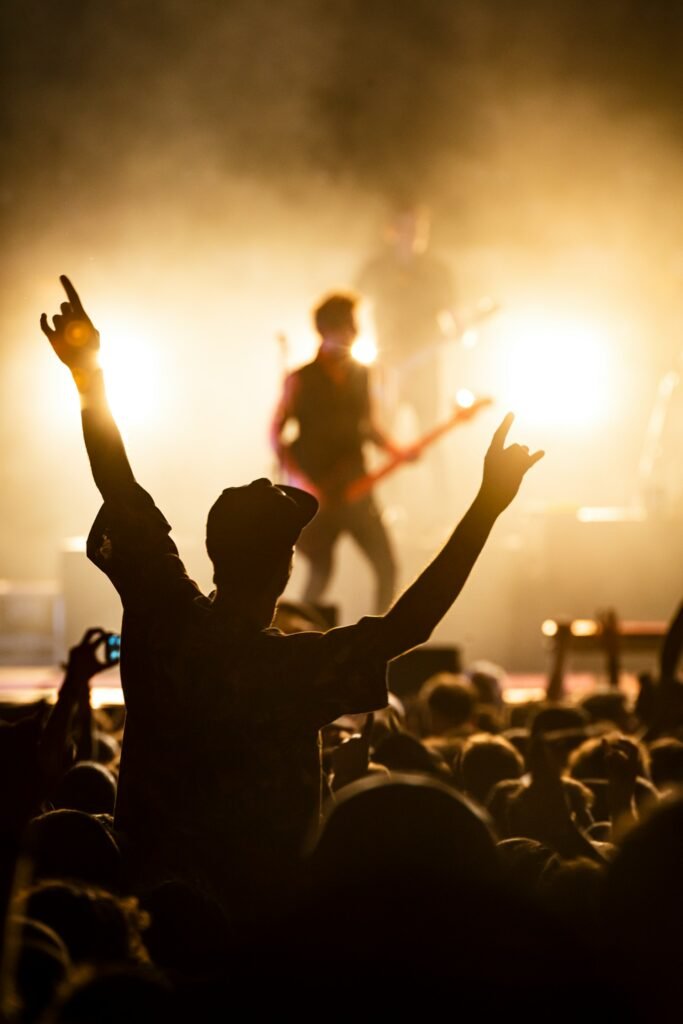Concerts hold a special place in the hearts of music lovers worldwide. From the electrifying energy of a rock concert to the soul-stirring melodies of a classical performance, concert offer an unparalleled experience that transcends the ordinary. In this article, we delve into the world of concerts, exploring their history, impact, and the sheer joy they bring to performers and audiences alike.
Introduction to Concerts
Concerts, often referred to as live performances, are musical events where artists or bands perform in front of a live audience. These events can range from intimate gatherings in small venues to massive stadium shows that attract thousands of spectators. The allure of concert lies in the unique blend of music, atmosphere, and communal experience they offer.
Types of Concerts
Concerts come in various forms, catering to diverse musical tastes and preferences. Some common types include live music concert, classical music concert, pop concert, and rock concert. Each type offers a distinct vibe and appeals to different audiences.
History of Concerts
The roots of concerts can be traced back to ancient civilizations, where music played a central role in religious ceremonies and communal gatherings. Over the centuries, concert evolved into organized events, with the emergence of concert halls and dedicated performance spaces. The advent of technology further revolutionized the concert-going experience, paving the way for large-scale productions and global tours.
The Experience of Attending a Concert
Attending a concert is more than just listening to music; it’s an immersive sensory experience. The palpable energy in the air, the thrill of seeing your favorite artists perform live, and the camaraderie shared with fellow fans create memories that last a lifetime. Whether it’s singing along to anthems or swaying to the rhythm, concert have a magical way of captivating audiences and forging connections.
Planning for a Concert
Preparing for a concert involves careful consideration of various factors, from selecting the right event to purchasing tickets and planning logistics. With an abundance of concerts happening year-round, finding one that aligns with your musical tastes and schedule is key. Once you’ve chosen a concert, securing tickets early and making necessary arrangements ensure a smooth and enjoyable experience.
Concert Etiquette
Respecting performers and fellow concert-goers is essential to fostering a positive atmosphere. Concert etiquette includes refraining from disruptive behavior, such as talking loudly or using electronic devices during performances. By adhering to these guidelines, attendees contribute to the overall enjoyment of the event for themselves and others.
Impact of Concerts on Artists
For artists, concerts serve as a platform for artistic expression and interaction with fans. The thrill of performing live, the adrenaline rush of connecting with audiences, and the feedback received in real-time make concert a cherished aspect of their careers. Beyond the stage, concert also offer opportunities for artists to cultivate a loyal fan base and showcase their talent on a global scale.
Impact of Concerts on Fans
Concerts hold immense significance for fans, serving as memorable experiences that evoke emotions and create lasting impressions. Whether it’s witnessing a legendary performance or discovering new music, concert have the power to transport audiences to another world. The sense of belonging and unity fostered at concert fosters a sense of community among fans, strengthening their bond with both the music and fellow enthusiasts.
Technological Advancements in Concerts
Advancements in technology have transformed the concert landscape, enhancing audiovisual effects and immersive experiences. State-of-the-art sound systems, dazzling visual projections, and interactive elements elevate concerts to new heights, captivating audiences and creating unforgettable moments.
Challenges Faced by Concert Organizers
Organizing a successful concert involves overcoming various challenges, including logistical hurdles, security concerns, and ensuring a seamless experience for attendees. From coordinating artist schedules to managing crowd control, concert organizers must navigate numerous complexities to ensure the event’s success.
Concerts in the Digital Age
The digital age has revolutionized how concert are experienced, with the rise of livestreaming and virtual reality technologies. These innovations enable audiences to enjoy concerts from the comfort of their homes, transcending geographical barriers and reaching a global audience. While virtual concerts offer convenience and accessibility, they cannot replicate the visceral thrill of a live performance.
Environmental Impact of Concerts
Despite their cultural significance, concert can have a significant environmental footprint, with large-scale events contributing to carbon emissions and waste generation. In response, many organizers are adopting sustainable practices, such as minimizing energy consumption, promoting recycling, and offsetting carbon emissions, to mitigate their environmental impact.
The Future of Concerts
As technology continues to advance and societal preferences evolve, the future of concerts holds endless possibilities. From immersive virtual reality experiences to innovative interactive performances, concert are poised to undergo further transformation, adapting to the ever-changing landscape of entertainment.
Conclusion
Concerts are more than just musical events; they are immersive experiences that unite performers and audiences in a shared celebration of music and emotion. From their rich history to their profound impact on artists and fans alike, concert hold a special place in our hearts and culture. As we look to the future, the magic of concerts will continue to inspire and captivate audiences around the world.

